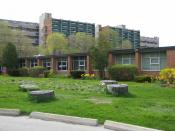Aristotle once said, "For the things we have to learn before we can do them, we learn by doing them." This is the fundamental concept behind experiential learning, which is based on the philosophy of experiential education derived from John Dewey's curriculum theory. This philosophy of education later developed into the movement of educational progressivism, which advocates that humans are sentient social beings whose capacity to learn is maximized in real-life engagements with other people. The idea was that children came to school to do things and live in a community that gave them real, guided experiences that fostered their capacity to contribute to society.
In contrast, conservative educators stress the importance of organized knowledge in schools. They believe that schools exist primarily to transmit systematic knowledge. Often, this is where we find teachers described in Sydney J. Harris's essay, who are moonlighting as charcutiers, forcing processed knowledge into students.
This method of textbook learning creates very little stimulus, and with an overwhelming course load, students tend to become passive towards their education. What this education produces are, in Harris's words, well-informed dunces.
The solution might very well be found in Dewey's idea of integrating classroom theory with practice in the real world. By actively engaging students in an experience that will have real consequences, it affords them a chance not only to apply what they have learnt from formal education, but also to acquire new knowledge through this very experience. Experiential education and traditional education should not be mutually exclusive, but rather, they should complement each other. This concept of the child being an active learner has been discussed in Rousseau's works as an alternative to the idea of tabula rasa, which Paulo Freire further extends in his attack on the "banking" educational methodology where students are depicted...


